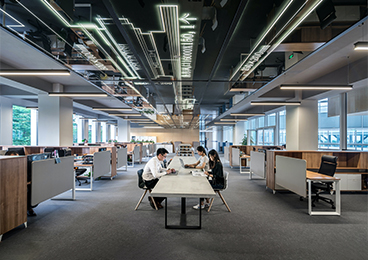Choose the Right General Contractor for Successful Commercial Construction Projects
Body
When it comes to commercial construction, hiring the right general contractor can make or break your project. Whether you're constructing a new office building, retail space, or industrial facility, a reliable general contractor ensures that your vision becomes a reality on time and within budget. Their role extends beyond just managing the building process—they oversee every aspect, from planning and permits to execution and finishing touches.
In this article, we’ll explore the key responsibilities of a general contractor in commercial construction, why choosing the right one is critical, and how to find a trusted partner for your next commercial project.

The Role of a General Contractor in Commercial Construction
A general contractor is essentially the project manager of a construction job. In the context of commercial construction, this professional or company is responsible for supervising all activities on the job site, ensuring that subcontractors complete their work correctly, and making sure the project adheres to the blueprint, safety standards, and deadlines.
Here are the main duties a general contractor performs in commercial construction:
Planning and Budgeting: From day one, a general contractor works with architects, designers, and engineers to interpret the building plan and establish a budget.
Hiring Subcontractors: Electrical, plumbing, HVAC, masonry, and roofing work are typically handled by subcontractors. The general contractor sources and supervises these teams.
Scheduling and Coordination: Ensuring that all tasks occur in the correct order is essential in commercial projects. Contractors develop schedules and coordinate deliveries, labor, and inspections.
Obtaining Permits: A good general contractor is familiar with local building codes and will take care of all required permits and paperwork.
Quality Control and Safety: They’re responsible for meeting all safety requirements and conducting quality checks throughout the construction process.
Communication: Keeping clients informed with regular updates and addressing concerns is part of a contractor’s job.
Why a Skilled General Contractor Matters in Commercial Construction
Commercial construction is far more complex than residential projects. It often involves larger buildings, specialized systems, tighter deadlines, and a higher budget. A skilled general contractor brings experience, professionalism, and problem-solving abilities to navigate these challenges effectively.
Here’s why hiring the right contractor matters:
Project Efficiency: An experienced contractor knows how to streamline operations and prevent delays that can cost you money.
Budget Management: They help avoid unnecessary expenses by preventing rework, reducing material waste, and negotiating favorable pricing from suppliers.
Risk Reduction: A seasoned contractor knows how to comply with legal regulations, safety standards, and quality expectations—minimizing the risk of lawsuits or project failure.
Strong Network: Trusted contractors have long-standing relationships with reputable subcontractors and suppliers, which leads to better pricing and reliability.
Accountability: A good contractor will take full responsibility for ensuring the project’s success, providing warranties and transparent documentation.
How to Choose the Right General Contractor for Your Commercial Construction
The success of your commercial project heavily depends on your choice of general contractor. Here’s a step-by-step guide to making the right decision:
1. Check Credentials and Experience
Always ask about the contractor’s license, insurance, and commercial construction experience. Review their portfolio of completed projects similar to yours to understand their capabilities.
2. Ask for References
Contact past clients to learn about their experience. Were deadlines met? Was the contractor responsive and professional? Did the final result meet expectations?
3. Review Contracts Carefully
The contract should detail all aspects of the job including scope, payment schedule, timeline, materials, and dispute resolution. If anything seems unclear, don’t hesitate to ask for clarification.
4. Get Multiple Quotes
Comparing quotes from at least three different general contractors helps you understand market rates and choose the best value—not necessarily the cheapest price.
5. Evaluate Communication
A good contractor communicates regularly and clearly. If they are hard to reach or vague in their answers, it might be a red flag.
Trends in Commercial Construction and the Role of the General Contractor
With the increasing demand for green buildings, smart infrastructure, and flexible workspaces, commercial construction is evolving. Modern general contractors must now be well-versed in sustainable building practices, LEED certifications, energy-efficient systems, and integration of smart technology.
Digital tools like Building Information Modeling (BIM), project management software, and drones are also becoming essential in commercial projects. A forward-thinking general contractor will leverage these technologies to enhance accuracy, collaboration, and productivity.

Final Thoughts
Choosing the right general contractor for your commercial construction project is not just a step—it’s a strategic decision that directly impacts your investment. From planning and budgeting to execution and handover, your contractor is your partner in success.
Don’t rush the selection process. Take your time to research, vet, and communicate your expectations. A trustworthy and experienced contractor not only completes the job but also adds long-term value to your property.
By working with the right general contractor, you ensure that your commercial project runs smoothly, stays on budget, and exceeds expectations. Whether it's a retail plaza, a corporate headquarters, or a warehouse facility, expert guidance and execution are essential to your success.







Comments